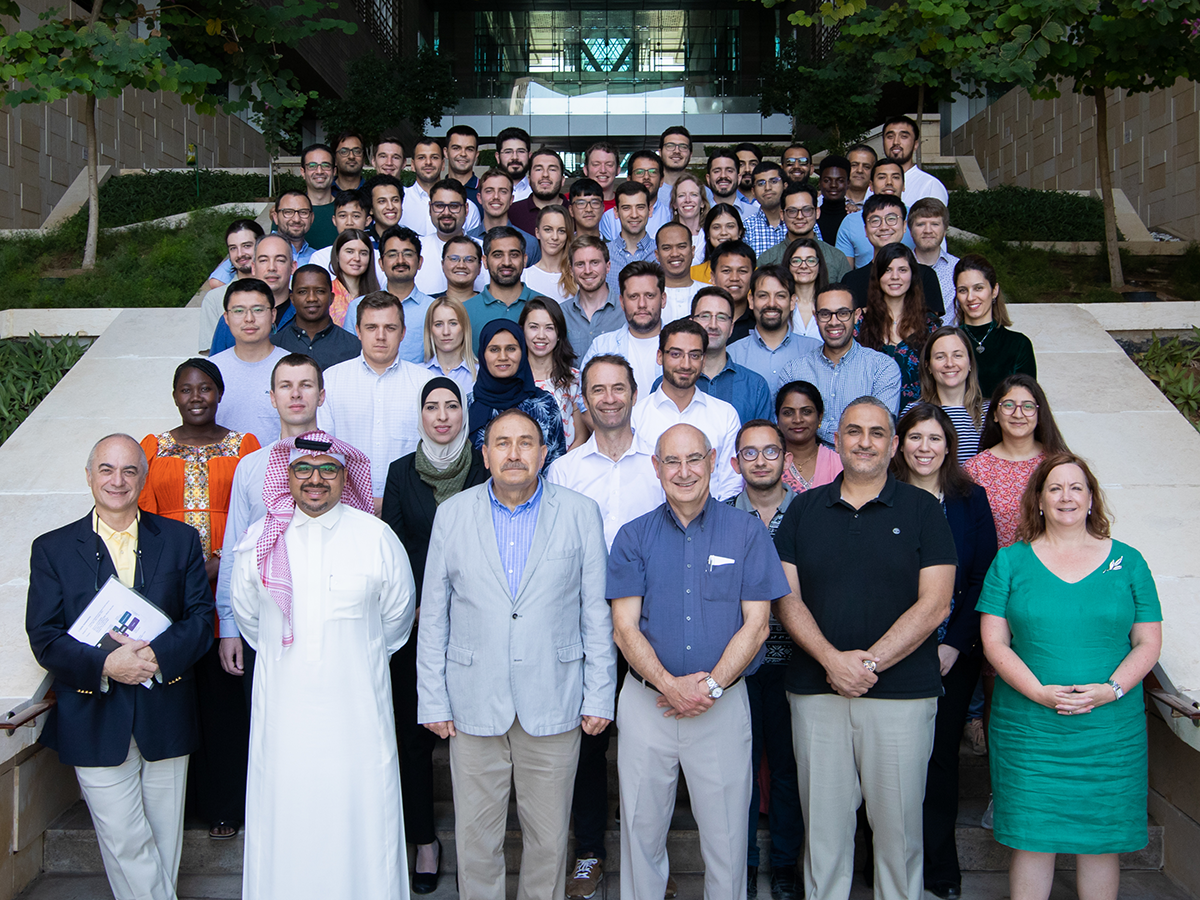.png?sfvrsn=ac22444e_2) Center Director: Tadeusz Patzek
Center Director: Tadeusz Patzek
Director, Ali I. Al-Naimi Petroleum Engineering Research Center (ANPERC) Professor, Chemical and Petroleum Engineering
Physical Science and Engineering Division
Climate change will dominate most public policy decisions in Saudi Arabia and the region during the next decade. For the world's climate to remain within 2°C of current temperatures by the year 2100, CO2 emissions must peak by 2028 and a -3.8% decline rate of CO2 emissions must follow (SIAM's global climate modeling app). Consequently, global oil production must peak within the next few years. In the meantime, coal production peaked in 2013 (but started increasing again in 2017-2019), and production from US shales will peak within the next 3 years.
There is a one-to-one correlation between global GDP and oil supply; indeed, oil and gas are the main drivers of economic growth. For example, the carrying capacity of the Arabian Peninsula has been 3-5 million people for millennia, yet, the current population is 85 million people thanks to electricity, desalinated water, and urban infrastructure, all made possible by oil and gas. Climate change and emission restrictions will put today's developments into deep peril.
Oil and gas will fuel the transition from fossil fuels to a more renewable "green" future. However, detailed analyses reveal the interwoven complexity between energy, climate, clean water, food supply, and "mineral criticality" for the energy transition. In addition, oil and gas are the main sources of raw materials for the expanding petrochemical industry in Saudi Arabia.
The global conditions outlined above inform both the context and background for ANPERC's plan of action, which takes into consideration Saudi Arabia's future energy needs and economic development (highlighted in italics):
- Saudi Arabia will increasingly use oil revenue to subsidize the transition to other power supply schemes and the continuing modernization of Saudi Arabia. ANPERC will redouble its multidisciplinary efforts to advance enhanced oil recovery schemes for the Saudi oil fields to ensure steady production.
- Saudi Arabia will need much more natural gas to wean its electricity generation system away from oil -its greatest export commodity- and decrease CO2 emissions from electricity generation. ANPERC will use its unique multidisciplinary expertise to address technological needs related to the development of the Jafurah basin shales and tight gas reservoirs.
- Saudi Arabia must increase the capture and storage of CO2 from all its major power plants, refineries and chemical plants to stay within the Paris Climate Agreement. ANPERC will focus its expertise on carbon geological sequestration and CO2 utilization for enhanced oil recovery.
- Economical geothermal energy technology can satisfy some of the basic energy demands in Saudi Arabia. ANPERC will continue advancing focused research on geothermal energy.
- There are other critical geo-related issues in the global energy challenge, from fugitive methane emissions -a major greenhouse gas- to radioactive leaks (Saudi Arabian plans include 20 GWe from nuclear power plants before 2040). ANPERC can be the catalyst to bring together expertise in both the Energy Resources and Petroleum Engineering (ERPE) and Earth Science and Engineering (ERSE) programs to address these issues.
The previous analysis highlights the energy challenge facing humanity in an era of global warming and ecological deterioration. Given their interwoven complexity, energy production in the 21st century will be defined through combined fundamental and applied research that integrate mathematics, physics, engineering, geology, petrophysics, geophysics, geochemistry and geomechanics.
These observations define our vision and mission:
Vision
Contribute unprecedented physics-based engineering solutions for subsurface energy resource recovery and geo-storage with reduced environmental and economic costs that have decisive impact to the Kingdom and the world.
Mission
Build a multidisciplinary, collaborative learning and research environment for faculty and students to advance scientific knowledge and engineering solutions while educating future science and industry leaders.
Learn more about ANPERC’s Research.
Learn more about ANPERC’s associated Education programs.
0
Faculty0
Ph.D. Students0
Masters students0
Postdoctoral fellows0
Research scientists